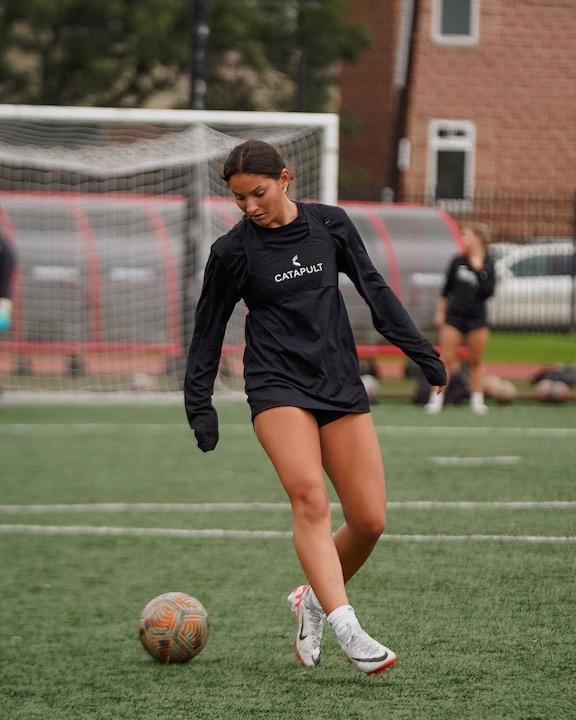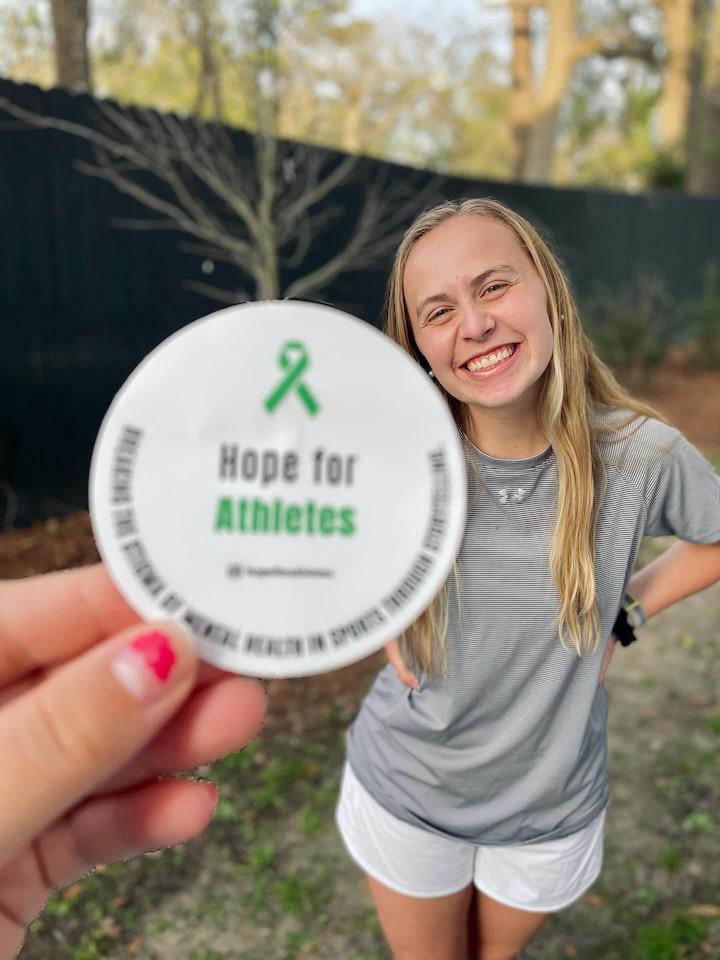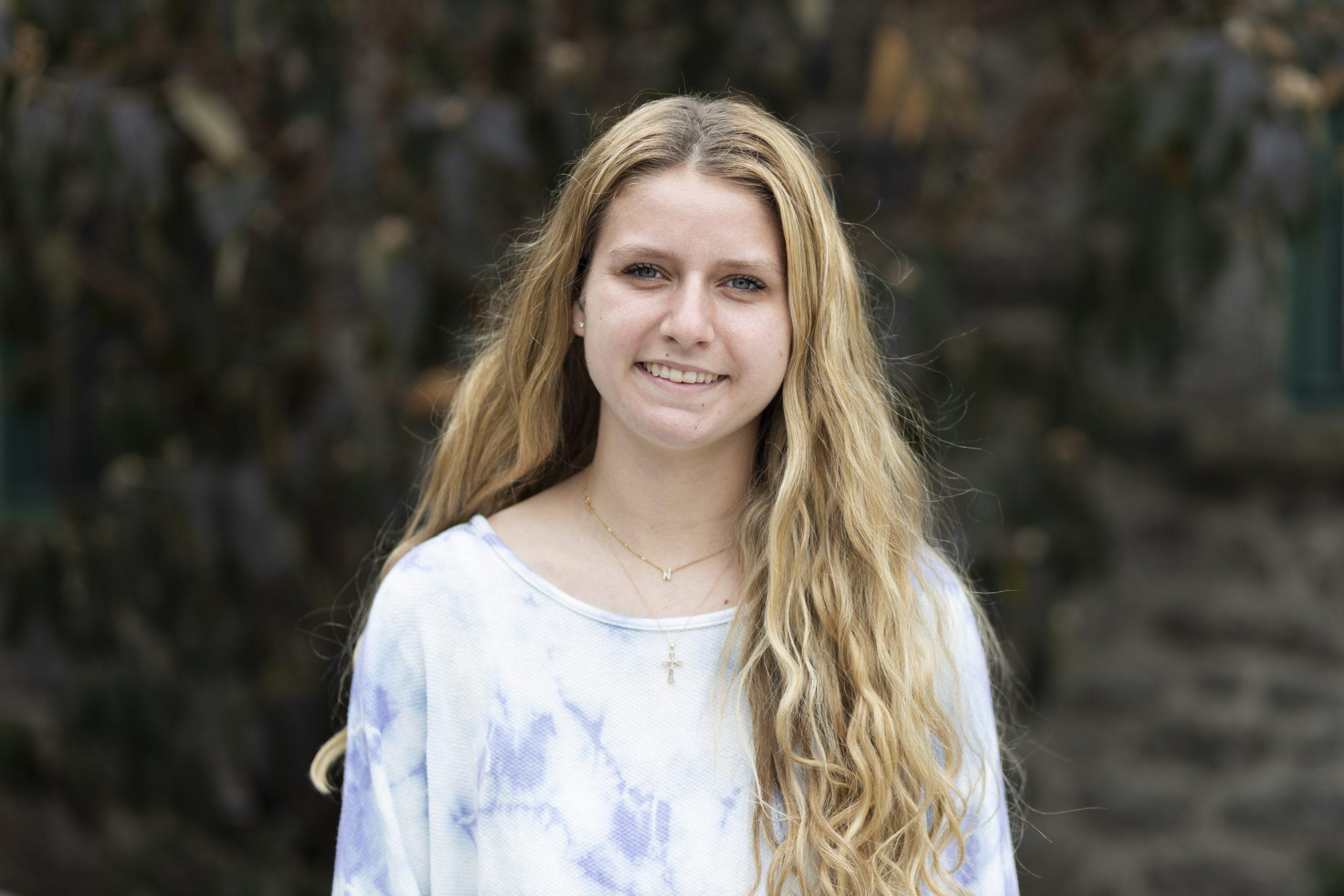Amanda Dahlman had high hopes of staying involved in the athletics world after graduating from Messiah University in 2020.
As a defensive specialist and libero for Messiah’s women’s volleyball team, Dahlman had learned so much about how to be a great volleyball player on the court, but not as much about how to be a mentally healthy person off it.
Aware of the lack of resources available to student-athletes throughout her own personal journey with mental health, Dahlman decided to become an advocate for others after she graduated.
“I saw firsthand how many athletes struggle with their mental health,” Dahlman said.
Seventy percent of student-athletes said they experience mental health issues, according to a July 2022 survey of 1,200 college students by TimelyMD, a digital platform that offers virtual health care for students.
In April 2022, Dahlman created the Instagram account @hopeforathletes, a platform where student-athletes from all over the country can come together and share their stories and personal experiences with mental health. Her intention behind all of this: to be the resource she wished she had while she was struggling.
“I reflected on my high school self, and I never remember anybody ever talking about mental health,” Dahlman said. “I really wish that I would have had more resources and then I could have been better equipped to just even know definitions like, this is what anxiety is, this is what depression is.”
Dahlman finds student-athletes on Instagram and invites them to join the movement at @hopeforathletes. She has highlighted the stories of over 190 athletes since creating the account. Ranging from swimmers, to baseball players, to gymnasts and more, the account provides student-athletes with a space to help break the stigma surrounding mental health through storytelling and building connections.
“It allows people to feel seen and it allows people to build connections that wouldn’t be possible if it was only the statistics,” Dahlman said. “I think it helps break the stigma in that sense, because a big part of stigma is isolation, and I think a big part of storytelling is connection, so I think those things really combat one another.”
For Temple University women’s soccer player Reese Henderson ’25, that sense of connection is exactly what motivated her to open up and share her story on @hopeforathletes when Dahlman reached out. Henderson expressed how mental health has always been a part of her life and that college soccer allowed her to dissociate herself from the sport, accepting the fact that she was still a person without it.
“I think putting yourself out there in any way, and being vulnerable is always scary, it’s always going to invite judgment.” Henderson said.” But I think that it’s more important to share your story because those few people that aren’t judging you might need to actually hear that.”

“I think putting yourself out there in any way, and being vulnerable is always scary, it’s always going to invite judgment.” Henderson said.” But I think that it’s more important to share your story because those few people that aren’t judging you might need to actually hear that.”
Not only does storytelling invite connection, but for Henderson, it helps build a sense of community surrounding the topic of mental health. This became particularly true for Henderson’s teammates, who now come to her more openly as someone they can trust, to share their experiences and struggles with mental health, she said.
“I think they see more than just, ‘Oh, that’s my teammate, that’s a person who’s going through something real’ and that I can talk to you, and I can lean on you because I know that we share similar feelings,” Henderson said. “I think that’s the best thing about this for me, is that people feel like they can come to me.”
For many other athletes who have participated in sharing their stories on @hopeforathletes, there have been similar outcomes. After being forced to medically retire from soccer, Rosanna Kasemier ’25, of Park University in Parkville, Missouri, shared her story and took immediate notice of her vulnerability’s impact upon her former teammates.
“A lot of my teammates more easily come to me and be like, ‘Hey, I don’t want to go to the trainers, but I feel like I can talk to you,’ and they tell me about how they’re struggling or how they’re feeling,” Kasemier said. “Here on campus, they know that they can always come to me and that I can essentially just be a resource.”
Not only are these athletes a resource for others such as their teammates, but through their storytelling, they become a better resource for themselves.
“My story is my story, and I want to share it because it also helps me, it’s like a form of therapy,” Henderson said.
This form of therapy quickly became the answer for Kasemier as well, who was struggling with her identity after being informed that she could never play soccer again.
“When my doctors told me that it wasn’t safe for me anymore to play soccer, I was like, ‘Okay, what am I now?’” Kasemier said. “When I started to write my stories, and I got reactions back, it kind of gave me the reassurance that I was more than just an athlete.”
But the work of storytelling does not end here for Dahlman, who plans to establish Hope for Athletes as a nonprofit organization, once the timing is right.
“Right now, I’m just taking it one thing at a time and continuing to do the storytelling and making that consistent,” Dahlman said. “Then I want to build off of that once I’m able to get the nonprofit established.”
Once Dahlman finishes her master’s degree in counseling in December, she will be able to dedicate all of her energy and attention to achieving this goal. Aware that she is a one-person operation and that she cannot accomplish this on her own, Dahlman said she needs to get more people on board in order to “work as a team,” and help bring Hope for Athletes to new heights.
“I would need to really find people that can help me, and, and I’m okay with that. I think it’s so awesome, I think that’s the athlete in me,” Dahlman said. “But once I do, I just feel like honestly, the sky’s the limit.”
Members of the St. Joe’s community seeking support are encouraged to contact the following resources:
Counseling and Psychological Services (CAPS), 610-660-1090
Campus Ministry, 610-660-1030
The Office of Student Outreach & Support, 610-660-1149
The Jesuit community, 610-660-1400
Employee Assistance Program, 866-799-2728
This story is part of a series focused on college athletics and mental health. It highlights ongoing efforts by different programs and individuals to break the stigma surrounding mental health across the NCAA.







































